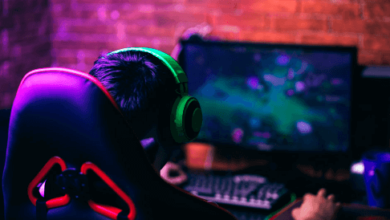How Patience and Strategy Go Hand in Hand

Ever find yourself struggling to make the smart decision? How about hit major, meaningful goals that you set for yourself? Sometimes hard work isn’t quite enough; to complement it, you need a good dose of patience. Patience isn’t just waiting though!
It can be the active choice to let things unfold rather than jumping at the first opportunity. It can be the choice to keep plowing forward with the same strategy. It can be having faith that the way you’re going is the right way. When combined with a solid strategy, it can help us make confident, calculated moves in anything from our finances to personal projects.
And, although we’re often encouraged to think short-term and fast-track everything, there’s a reason patience and strategy have always been prized skills.
Patience: An Unexpected Strength
Patience may seem passive, but research shows it requires self-control and resilience, often helping people manage stress more effectively. Psychologist Sarah Schnitker found that individuals who actively practice patience tend to experience less depression and stress, as they can approach setbacks with a calm, problem-solving mindset.
Patience, in this sense, allows us to make thoughtful decisions rather than reactive ones, turning challenging situations to our advantage. In Japanese culture, the concept of “gaman” embodies this, encouraging resilience through calm endurance. In our lives, patience helps us pause, gather facts, and act wisely, turning challenges into opportunities by waiting for the right moment to act.
Strategy: The Precision Tool for Getting Ahead
Patience creates space for clear thinking, while strategy turns that clarity into action. Strategists – whether planning careers, finances, or something else – often succeed because they anticipate potential hurdles. Research from Harvard Business School suggests that all different industries need leaders who can strategize.
A good strategy allows for flexibility outside of work too; for instance, someone saving for a home can adjust contributions during setbacks without losing sight of the goal. Revisiting strategy provides more than a fixed path – it offers a blueprint that adapts and grows with us.
The Patience-Strategy Dance in Practice
Blackjack and chess both offer clear examples of how patience and strategy can combine to bring out the best results, although they apply this balance in different ways. Unlike games based purely on luck, blackjack relies heavily on probability and knowing when to hold back. To play online blackjack at Bovada successfully, it’s not just a case of crossing your fingers and clicking hit! Instead, seasoned blackjack players rely on mathematical probabilities to guide each move.
The game’s strategic depth begins with understanding the basic rules and core mathematics. At its heart, blackjack is a game of skill where players compete against the dealer, not each other.
The objective is simple: get a hand value as close to 21 as possible without going over. However, the simplicity of this goal masks the complex decision-making process involved. Here, it’s not about hoping for a win but about making calculated decisions.
Patience makes up the other part. Rather than rushing to hit every time, patient players recognize when it’s smarter to wait. This approach can pay off, lowering the house edge. The ability to wait for better odds, rather than reacting impulsively, is often the difference between steady wins and consistent losses.
Chess also illustrates this balance of patience and strategy in a more calculated, forward-thinking way. Unlike fast-paced sports or games of pure chance, chess demands you think several moves ahead. Grandmasters don’t just focus on their immediate move; they develop long-term strategies, often anticipating an opponent’s actions far in advance. In chess, patience is so crucial that one miscalculated move can undo an entire game’s strategy, reminding us that sometimes the best move is no move at all – until the time is right.
Together, blackjack and chess showcase how a balanced combination of patience and strategy allows players to stay focused, manage risk, and increase their odds of success – an approach that serves as a valuable reminder of how these skills can elevate our decision-making in all areas of life.
Bringing Patience and Strategy into Everyday Decisions
This blend of patience and strategy doesn’t just apply to games or financial goals; it has a real impact on everyday decisions. For example, take the process of learning a new language. It’s well documented that people who pace their learning with daily, incremental practice tend to reach fluency faster than those who try to cram everything at once. Here, strategy comes in by breaking down the learning process into manageable steps, and patience allows each step to build naturally on the previous one. Over time, this creates a strong foundation for fluency that’s harder to achieve through a rushed approach.
Another great example is in career planning. Imagine someone is vying for a promotion or looking to enter a new field.
Rushing to stand out or putting pressure on every project isn’t as effective as mapping out a strategy that includes upskilling, networking, and targeted achievements over time. People who develop long-term career strategies are often less likely to burn out and may enjoy better well-being at work. With a strategy that includes learning and building relationships, and the patience to see it through, career growth becomes sustainable.





